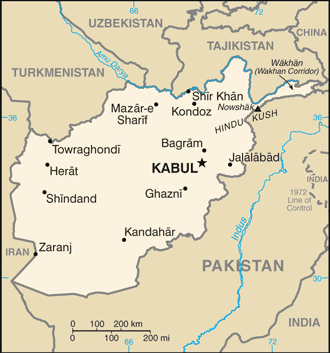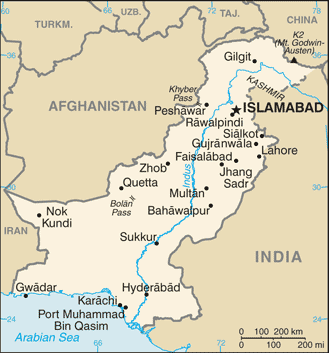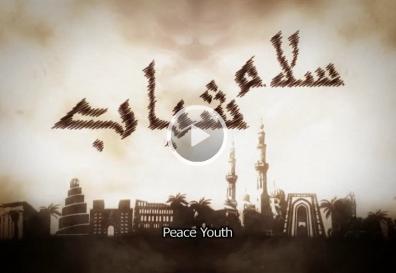World Recognizes International Day of Peace
To honor this worldwide event, USIP presents some highlights of peacebuilding around the world in 2011.
To honor this worldwide event, USIP presents some highlights of peacebuilding around the world in 2011.
USIP's Work in Afghanistan on the International Day of Peace
The below efforts by two of USIP’s partner organizations in Afghanistan reflect USIP’s commitment to promoting our Afghanistan strategic objectives of:
- Informing U.S., Afghan and international policy and practice;
- Strengthening governance and the rule of law;
- Building understanding of and capacity in conflict prevention, mitigation and resolution for Afghan individuals and institutions;
- Improving internal coordination, organizational learning and program impact.
USIP Afghan Partner Organization – The Liaison Office Message:
“With support from USIP, The Liaison Office (TLO) has undertaken access to justice projects at both the provincial and district level since 2007. TLO has set up Commissions on Conflict Mediation (CCM’s) in Khost and Paktia provinces. These commissions have proven highly effective in resolving local disputes as they bring together high-level government leaders and tribal elders to address persistent conflicts in these provinces, in particular land conflicts. In its first year of operation, the Khost CCM solved 40 land conflicts. In 2010, after an exploratory period, TLO applied a modified CCM model to the district level, establishing government-approved dispute resolution shuras – known as Justice Shuras – in Paktia, Nangarhar, Uruzgan, Helmand, and Nimruz provinces. To date, the Justice Shuras in Nangarhar have settled more than 130 disputes and 100 disputes in Paktia. TLO’s justice projects have succeeded in building peace at the local level, and creating bridges between the Afghan government, tribal leaders, and the Afghan people.”
USIP Afghan Partner Organization - Cooperation for Peace and Unity (CPAU):
“We must seek to refresh our commitment to a vision of restoring broken or unjust relationships, be they economic, political, social, emotional or spiritual. All of us must work together to promote a sustainable culture of peace. Peace education efforts, whether they are formal or informal, can contribute to the development of an authentic consciousness that is necessary to change attitudes and behaviors in order to achieve greater cooperation and peaceful problem solving. Peace education, which involves learning new interpersonal skills and developing a broader understanding of different cultures, is essential to enable us to function as global citizens and transform the human condition for the better. Peace education is essential for children and adults alike. Meanwhile, building peace at the political level is vitally important but is not sufficient for obtaining true and lasting peace. Political peacebuilding is just a temporary elimination of physical violence that addresses only the surface level and not the root causes of violence. Political peacebuilding must therefore be accompanied by sustained structural and social peacebuilding efforts.”
USIP's Work in Pakistan on the International Day of Peace
USIP’s South Asia Adviser, Moeed Yusuf, will be in Islamabad to work on USIP's projects aimed at promoting alternatives to extremist rhetoric, encouraging dialogue on religious tolerance, and broadening understanding of the costs of extremism on Pakistani society. An interconnected set of programmatic efforts, USIP is working to better understand recent societal shifts in Pakistan towards extremism. Projects include grants-based partnerships with local civil society organizations, development of a media production plan designed to counter extremist voices, and policy-research on potential means to generate and disseminate counter-narratives to current trends of intolerance and extremism.
USIP's Work in the United States on the International Day of Peace
Jeff Helsing, the dean of curriculum for the Institute's Academy for International Conflict Management and Peacebuilding, will be the keynote speaker at the Harrisonburg Peace and Unity Event, discussing the role of Youth and Peacebuilding. The event is being sponsored by the Harrisonburg Boys and Girls Clubs and the Mahatma Gandhi Center for Global Non Violence at James Madison University.
At the Institute’s Washington, DC headquarters, USIP’s Steven Heydemann and Scott Lasensky convened a series of workshops bringing together Syria specialists and officials from the U.S. government in order to examine the role third parties can play in ending the violence and promoting a political transition in Syria. As a publicly-supported institution, USIP frequently plays this bridge-building role between the U.S. government and outside specialists.
A group of 12th grade Girl Scouts are coming to USIP for a 90-minute workshop on peacebuilding. Alison Milofsky will lead a 90-minute interactive workshop on peace and conflict, and encourage students to think about ways they can contribute to peacebuilding.
USIP’s Theo Dolan is traveling to Iraq, where he will continue working on the final episodes for the second season of the USIP-funded “Salam Shabab,” a unique reality TV show for Iraqi youth engaged in peacebuilding.
David Smith, senior manager for educational outreach, is meeting with students at Montgomery Blair High School in Silver Spring, Maryland. He will work with about 50 students, engaging them in peacebuilding activities and talking to them about careers in the field. He works primarily with high school and college youth in teaching them conflict management skills and awareness. In this way, he is helping to develop a new generation of global peacebuilders.
Staff at USIP’s Center for Sustainable Economies, directed by Raymond Gilpin, will be working with a broad range of stakeholders in a workshop on creative approaches to minimize the violence associated with mining in resource-rich fragile states like the Democratic Republic of Congo. The workshop on conflict minerals supply chain management, co-hosted by the Global e-Sustainability Initiative and the Electronic Industry Citizenship Coalition, aims to promote peace by replacing existing war economy linkages with inclusive, profitable and welfare-enhancing mining activity. Thousands of men, women and children lose their lives and/or livelihood every year because of conflict mining. By contributing to this initiative USIP could make a difference and help lay the foundation for lasting peace.






